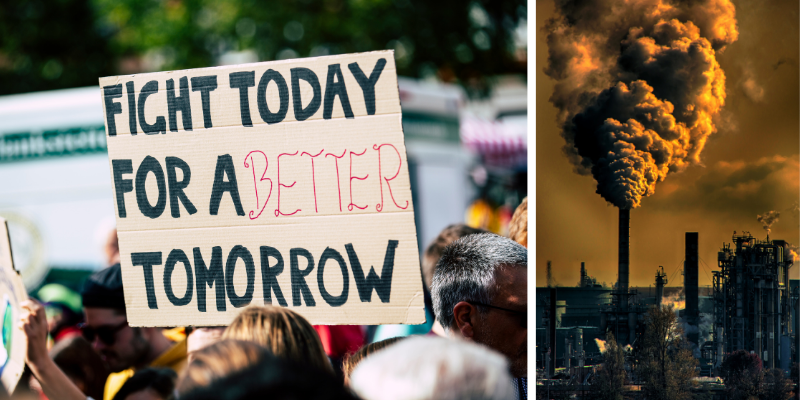
As global leaders prepare for COP26, we take a closer look at how CUBS faculty are at the forefront of research into sustainability in order to inspire a generation of responsible business leaders who will innovate to maximise the triple bottom line of people, planet, and profit.
During the two years since the last UN Conference on Climate Change in 2019, CUBS faculty have been exploring sustainability through a variety of angles in order to develop solutions that address the complex, social, economic, and environmental challenges that we all face.
Writing on The Conversation, for example, Dr Wendy Rowan, Dr Stephen McCarthy and Laura Lynch proposed five cost-effective ways Irish households can reduce their carbon footprint, by focusing on practical and economical solutions to use energy more efficiently.
Also looking at domestic emissions, Dr John Eakins started a conversation on the use of solid fuels as the primary means of heating Irish households during the winter months and its impact on air quality and pollution.
His analysis, published on RTE Brainstorm, suggested that more must be done from a legislative perspective, to ensure that households who solely rely on solid fuels can successfully transition into more sustainable practices and are incentivized to reduce their consumption.
Dr Stephen O’Sullivan challenged Irish people to confront their consumption habits as the planet cannot sustain the current levels of depletion.
Arguing that Ireland needs to start thinking about waste management more creatively, Dr O’Sullivan opined that Ireland needs to develop a cost-effective and innovative approach to upcycling in order to upcycle household waste.
In an op-ed published by the Journal.ie, Dr Stephen Onakuse highlighted the fact that between 25-30% of all food produced globally is either lost or wasted.
As a result, Dr Onakuse went on to write that we have created a situation in which a third of the world’s agricultural land is used to grow feed for livestock – not humans.
In order to help combat climate change, Dr Bernadette Power explored the idea of empowering businesses to independently drive environmental standards through co-operation and competition in the Irish Times.
Dr Power’s engaging thought piece stimulated discussions around how businesses might be encouraged to look to go beyond achieving basic compliance with environmental standards in the future.
More recently, PhD student, Conor O’Driscoll considered how retail parks don't make sense in a climate crisis due to the amount of carbon emissions produced by shoppers travelling to them by car.
As a result, Conor’s article suggests that planners need to take a more sustainable approach to urban development.
The need to revisit plans and strategies was also a theme in Dr Wendy Rowan and Dr Stephen McCarthy analysis detailing how the Government’s €8.7 billion plan to retrofit 500,000 Irish homes is failing to reach key demographics.
While applauding the ambition contained within the scheme, their contribution highlights how external factors risk negating it and conclude by arguing that the State needs to do more to help people finance retrofitting projects.
If you want to find out how CUBS is contributing to the fight against climate change, download our strategic vision which outlines how we’re inspiring the next generation of business leaders to design and deliver more sustainable organisations that work for the longer-term benefit of society, business and individuals.
Cork University Strategic Vision 2021-2025: Shaping leaders for a Sustainable Future


